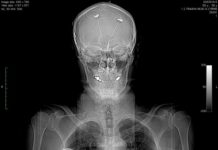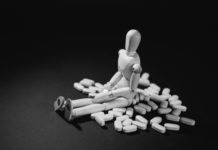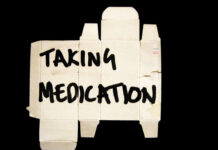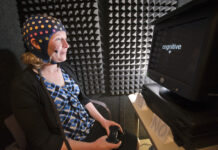New Study Casts Doubt on Efficacy of Ketamine for Depression
A new study, published this month in the Journal of Affective Disorders, investigated the effectiveness of weekly intravenous ketamine injections as a treatment for...
Adverse Effects: The Perils of Deep Brain Stimulation for Depression
Hundreds of people have been given remote control deep brain stimulation implants for psychiatric disorders such as depression, OCD and Tourette’s. Yet DBS specialists still have no clue about its mechanisms of action and research suggests its hefty health and safety risks far outweigh benefits.
Researcher Acknowledges His Mistakes in Understanding Schizophrenia
Sir Robin Murray, a professor at the Institute of Psychiatry, Psychology, and Neuroscience in London, states that he ignored social factors that contribute to ‘schizophrenia’ for too long. He also reports that he neglected the negative effects antipsychotic medication has on the brain.
Researchers Test Harms and Benefits of Long Term Antipsychotic Use
Researchers from the City College of New York and Columbia University published a study this month testing the hypothesis that people diagnosed with schizophrenia treated long-term with antipsychotic drugs have worse outcomes than patients with no exposure to these drugs. They concluded that there is not a sufficient evidence base for the standard practice of long-term use of antipsychotic medications.
Hallucinations Reported as Side Effect of ADHD Medication
Hallucinations and other psychotic symptoms have been reported after methylphenidate (Ritalin) treatment for ADHD.
The Reckoning in Psychiatry Over Protracted Antidepressant Withdrawal
Medically-induced harm—affecting tens of millions of people worldwide—has taken the field decades to take seriously.
How Academic Psychiatry Minimized SSRI Withdrawal
If academic psychiatry is evidence-based, why did it take two decades to recognize SSRI withdrawal as widespread and chronic among patients?
Study Finds ADHD Drugs Alter Developing Brain
A new study, published in the JAMA Psychiatry, investigates the effect of stimulant ‘ADHD’ drugs on the brains of children and young adults. The...
Scientists Clarify Risks of Augmenting with Antipsychotic Medications for Depression
The researchers found that while antipsychotic drugs may be slightly more effective than alternative antidepressants, they come with a much higher side effect burden.
Study Links SSRIs to Violent Crime in Youth
Individuals between the ages of 15 and 24 are more likely to commit a violent crime if they are taking an SSRI antidepressant than if they are not, according to new research out of Sweden. The study published in PLoS Medicine on Tuesday, suggests "warnings about the increased risk of violent behavior among young people taking SSRIs might be needed.”
Vitamin B6 Effective in Reducing Antipsychotic Induced Akathisia
A recent RCT showed that vitamin B6 is as effective as propranolol for the treatment of akathisia.
The FDA Is Hiding Reports Linking Psych Drugs to Homicides
In my wildest dreams, I could never have imagined being drawn into a story of intrigue involving my own government’s efforts to hide, from the public, reports of psychiatric drugs associated with cases of murder, including homicides committed by youth on the drugs. But that is precisely the intrigue I now find myself enmeshed in.
Study Suggests Long-Term Antipsychotic Use May Result in Poorer Cognitive Functioning
Association found between long-term antipsychotic use and poorer performance on cognitive tasks in adults diagnosed with ‘schizophrenia.’
Danish Study Finds Better 10-year Outcomes in Patients Off Antipsychotics
Study finds that 74% of patients with a psychotic disorder off antipsychotics at end of 10 years are in remission.
Criticism of Coercion and Forced Treatment in Psychiatry
A recent editorial, published in BMJ, argues there is an increase in coercive measures in psychiatry that are damaging to individuals diagnosed with mental illness.
Children Taking ADHD Drugs More Likely to Take Antidepressants as Teens
Adhering to a commonly prescribed medication for ADHD in children is associated with higher chances of being prescribed antidepressants in adolescence.
Study Explores Cognitive Effects of Antipsychotics
Reduced usage of antipsychotics in first-episode psychosis was associated with improved executive functioning.
Hypnotic Medications Linked to Suicide Risk
A recent review found that hypnotic medications are associated with risks of suicide and suicidal ideation.
Anticholinergic Medications Linked to Dementia Similar to Early Alzheimer’s
A new study, published in the Journal of Clinical Psychiatry, investigates the effects of anticholinergic medications, such as antidepressants and antipsychotics, on cognition in older adults diagnosed with schizophrenia.
After the Black-Box: Majority of Children Starting SSRIs Still Receiving Too High of Dose
In 2004, the FDA added a black-box warning to SSRI antidepressants on the increased risk of suicide among children taking these drugs. A new study suggests that this warning has increased the proportion of children who begin an antidepressant on a low dose, but the majority are still receiving higher than recommended doses.
ADHD Drugs Linked to Psychotic Symptoms in Children
Stimulant medications like Ritalin and Adderall, often prescribed to treat children diagnosed with ADHD, are known to cause hallucinations and psychotic symptoms. Until recently these adverse effects were considered to be rare. A new study to be published in the January issue of Pediatrics challenges this belief, however, and finds that many more children may be experiencing psychotic symptoms as a result of these drugs than previously acknowledged.
Antidepressant Use Linked to Dementia
A new study finds that elderly individuals using antidepressants are at significantly higher risk for dementia compared to depressed individuals who did not take the drugs.
Maternal Antidepressant Use Tied to Autism
In a major study, published yesterday in JAMA Pediatrics, the use of SSRI antidepressants during pregnancy was found to increase the risk of autism spectrum disorder (ASD) by 87-percent. Previous studies reveal that more than 13-percent of women currently use SSRI antidepressants during pregnancy.
Review Finds Lack of Evidence for Antidepressants in Treatment of Insomnia
Results from a Cochrane meta-analysis find that the common practice of prescribing antidepressants to treat insomnia is not supported by current evidence.
Antidepressants Linked to Dementia
A study published in this month’s issue of the Journal of Clinical Psychiatry found that the use of antidepressant drugs was associated with an...


























